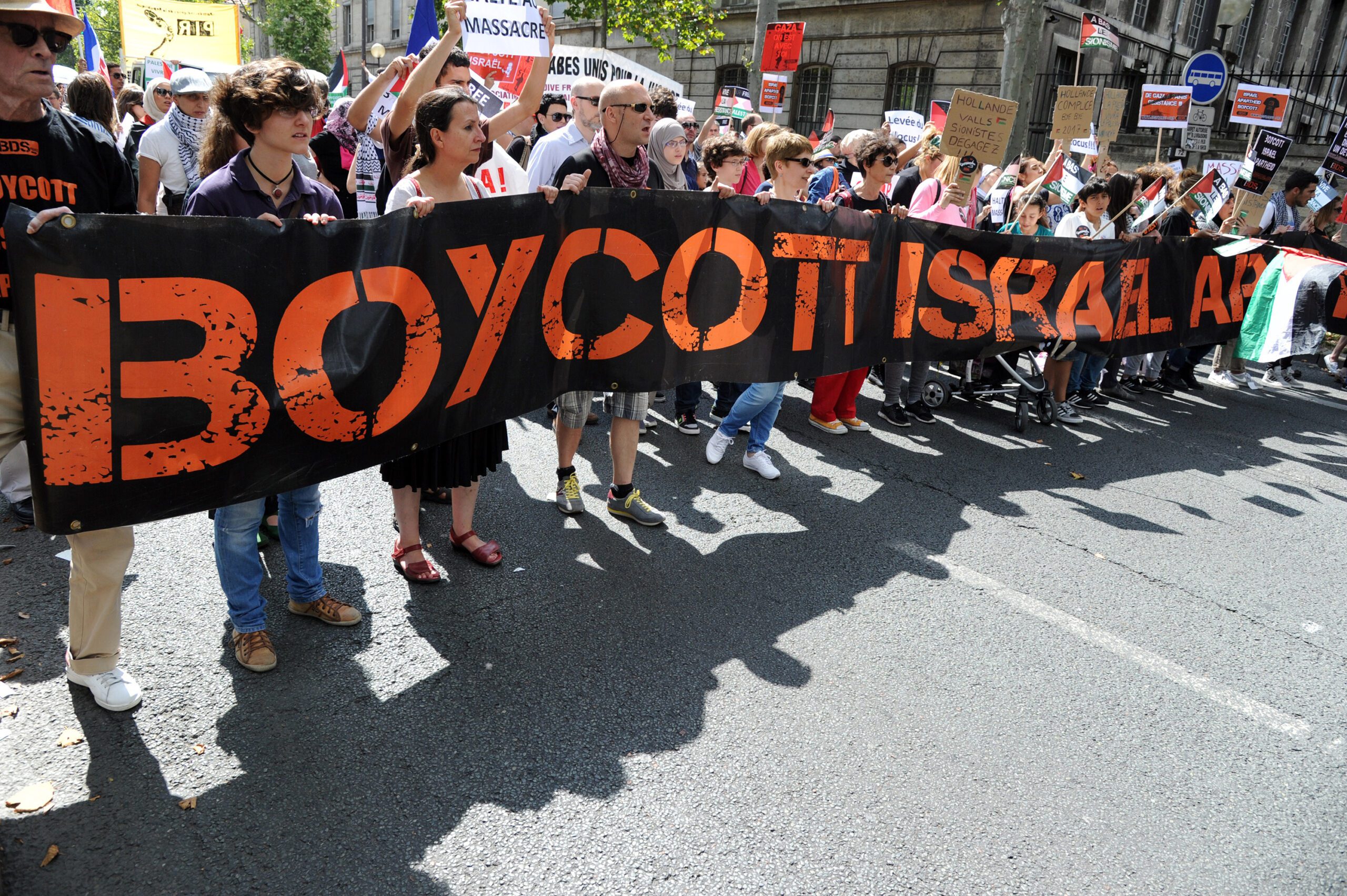Boycotting campaigns are spreading at a spectacular rate across the Arab world, as Israel continues its aggressions against Gaza for the thirty-fourth day.
Since 2005, the Palestinian-led BDS (Boycott Divestment Sanctions) movement has called for the boycott of Western companies and products that support Israel, but in light of Israel’s ongoing genocide in Gaza, this call was globally amplified.
On social media platforms, users are sharing charts mapping products produced by Western companies who partially or completely support the ongoing colonization and violence against Palestinian people, calling for a total and unconditional boycott. Users are particularly insistent on boycotting the three big companies that fund and support Israel heavily: these are McDonald’s, Disney, and Carrefour, among various other companies such as Starbucks, KFC, Nestlé, etc.
Last month, McDonald’s Israel announced that it would be providing thousands of free meals to the occupation’s army, sparking anger amongst the Arab public and fueling further calls for boycott. In the days that followed the announcement, citizens across Lebanon took to violently protesting facing McDonald’s branches, with some even resorting to destroying the property or vandalizing the branch.
Ever since the announcement, calls for boycott have gone international. Citizens globally have called for the boycott of McDonald’s, and as a result, the price of McDonald’s stocks have significantly dropped, and the company has begun to offer cheap food offers in order to compensate for the losses.
McDonald’s employees and Starbucks employees alike have taken to social media to report witnessing a sudden decrease in the number of customers frequenting the businesses.
In a possible move to mitigate the damage incurred by the the boycott campaigns, McDonald’s Kuwait took to social media to express solidarity with Palestine and pledged more than “$160,000 to relief efforts in Gaza”, while McDondald’s Qaatr pledged “$275,000 to relief efforts in Gaza” along with an announcement that it has nothing to do with the Israeli branch.
But despite these minor efforts at “solidarity”, activists are no longer willing to concede there when the overwhelming evidence points at McDonald’s involvement with funding the Isaeli occupation.
In the past two days alone, Lebanese citizens have reported receiving SMS notifications related to McDonald’s food deals and offers, as many continue to boycott the chain. In Qatar, Middle East Monitor reported that “some Western companies were forced to close after their management published pro-Israel content on social media. The branches of American café Pura Vida Miami and the French pastry shop Maitre Choux closed their doors in Doha last month.”
The publication also reported that Egyptian carbonated drinks company Spiro Spathis has now become “extremely popular as an alternative to Pepsi and Coca-Cola, after calls to boycott both.”
On TikTok, pro-Palestine users are sharing recipes and methods to cook similar foods and beverages to the chains they are now boycotting.
A lesser known part of the boycott campaign includes switching out Google as search bar for smaller search bars such as DuckDuckGo, and adopting browser extensions that hide ads from companies being boycotted, such as the Google chrome extension PalestinePact.
On another level, various Arab countries are taking to traditional advertising to promote boycott campaigns. Giant billboards across Kuwait City display images of blood-stained children with captions such as “Did you kill a Palestinian today?” according to a report by Al Mayadeen.
In a non-traditional call for boycott, activists are taking to blocking companies producing or shipping weapons for Israel. An instance that went viral over the weekend shows indigenous activists using a canoe to block a container ship carrying weapons from leaving a port in Tacoma, Washington.
While the ship eventually managed to leave the port, activists said they would track its route to ensure that it is blocked elsewhere.
Another instance shows activists in Oakland, California delaying a ship from leaving a port by hanging on to its ladder for nine hours. The ship, Cape Orlando, has been used in US military occupations in Iraq and Afghanistan previously.
In Barcelona, Spain, longshore workers announced on Monday that they would refuse to handle any cargo ships containing war material in order to “protect civilian population[s].”
As events are still unfolding in Gaza and Israel has declared its blatant refusal for an unconditional ceasefire at this time, activists are calling for the continuation of boycott efforts and to instead seek out alternative methods. To keep encouraging boycott efforts, pro-Palestine content creators are utilizing their platforms to promote local alternatives to products produced by global corporations.


